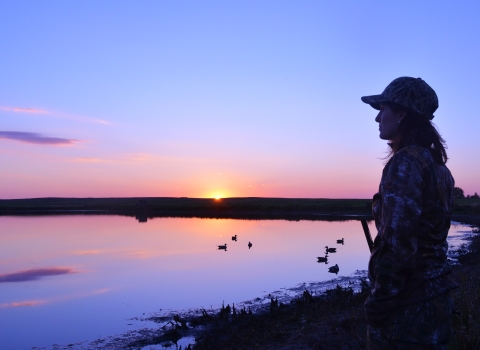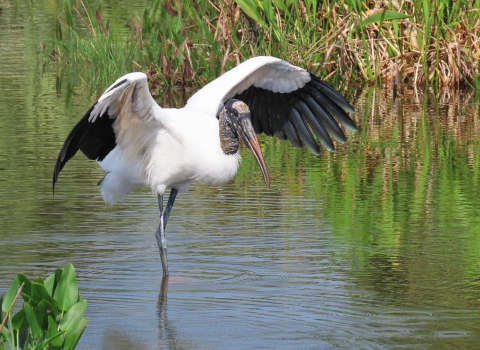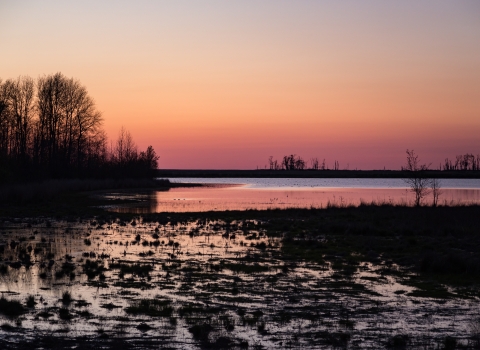The U.S. Fish and Wildlife Service today announced more than $20 million in grant funding to assist states and territories in the construction, renovation and maintenance of marinas and other boating facilities for outdoor recreation. Reauthorized by the Bipartisan Infrastructure Law Bipartisan Infrastructure Law
The Bipartisan Infrastructure Law (BIL) is a once-in-a-generation investment in the nation’s infrastructure and economic competitiveness. We were directly appropriated $455 million over five years in BIL funds for programs related to the President’s America the Beautiful initiative.
Learn more about Bipartisan Infrastructure Law , this year’s Boating Infrastructure Grant program will support projects in 20 states, Puerto Rico and the U.S. Virgin Islands. Boaters and manufacturers fund the program through excise taxes and duties on boating fuels and certain fishing and boating equipment, directed to the Sport Fish Restoration and Boating Trust Fund and administered by the Service.
“Boating Infrastructure Grants create and add public access for recreational boating and improvements to waterways across the nation, benefiting local communities and economies, wildlife and outdoor enthusiasts,” said Service Director Martha Williams. “Increasing outdoor recreation access and waterway stewardship complement the infrastructure improvements coming from the Bipartisan Infrastructure Law and America the Beautiful initiative.”
The WSFR program and the Boating Infrastructure Grants are part of a state-industry-federal partnership which forms the cornerstone of state-based aquatic resource conservation and was reauthorized by President Biden’s Bipartisan Infrastructure Law. The program, along with a $2 billion investment from the Bipartisan Infrastructure Law and the Inflation Reduction Act to restore our nations lands and waters furthers the work of the Department of the Interior in expanding outdoor recreation access and restoring cultural resources and open spaces. The program benefits all U.S. states and territories.
This year’s grants will support an estimated 381 new slips and berths as well as thousands of linear feet of additional side-tie docking space, plus other amenities including fuel docks, showers and Wi-Fi access for the benefit and enjoyment of the transient recreational boating public. Since its inception in 2000, the BIG program has awarded over $283 million to projects for large transient recreational boats (those over 26 feet in length and staying 15 days or less), including funding the construction of more than 6,800 berths and other amenities benefiting boaters across most states and U.S. territories. Grantees use BIG funds to construct, renovate and maintain marinas and other facilities with features for large transient boats that are used for recreation. Grantees may also use funds to produce and distribute information and educational materials about the program and recreational boating.
Under the BIG program, state, territory and District of Columbia boating agency partners can submit proposals for two different tiers of funding, each requiring that most grantees provide a matching share of up to 25% of project costs. Tier 1 funding provides a maximum federal funding amount of $200,000 per recipient annually, while Tier 2 funding is nationally competitive and is typically for larger-scale projects with a maximum federal funding of $1.5 million per application. This year the Service will fund more than $2.8 million for BIG projects in 19 states and the U.S. Virgin Islands under the Tier 1 subprogram, and $17 million in grants for projects in 10 states and Puerto Rico under the Tier 2 subprogram. States receiving BIG grants include Alabama, Arizona, Arkansas, Florida, Georgia, Massachusetts, Michigan, Minnesota, Mississippi, Missouri, New Jersey, New York, North Carolina, Ohio, Oregon, Rhode Island, South Carolina, Texas, Virginia and Wisconsin.
More information regarding the 2023 BIG grant awards can be found at www.fws.gov/program/boating-infrastructure. For more information about the Service’s Wildlife and Sport Fish Restoration program visit www.partnerwithapayer.org or http://wsfrprograms.fws.gov/.
-FWS-
The U.S. Fish and Wildlife Service works with others to conserve, protect and enhance fish, wildlife, plants and their habitats for the continuing benefit of the American people. For more information, visit www.fws.gov and connect with us on social media: Facebook, Instagram, Twitter, LinkedIn, Flickr and YouTube.



